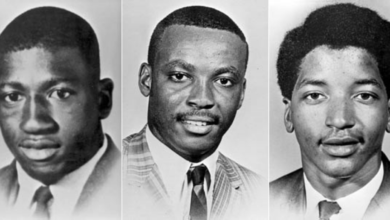Amazon is slamming the door on blind users, prompting demonstrations and a new national conversation about corporate profiteering against people’s needs.
The online book giant is actively working to get its Kindle e-readers into classrooms for students, grades K-12. However, in spite of efforts by disability rights activists, Amazon’s Kindle is inaccessible to blind users, both the devices themselves and the book files that are read on the devices. The National Federation of the Blind has announced a picket of the company’s headquarters on Dec. 12 to draw attention to demands of people with visual impairments.
Kindle content uses Amazon’s proprietary speech-to-text engine, and, though Kindle software applications are available on computers, iPads and other devices, the content itself can not be read by any accessibility tool the reader wants. Kindle has implemented rudimentary accessibility features that permit text-to-speech, but according the Federation, these “do not allow for the kind of detailed reading that students need to do in an educational setting. … The student cannot use the accessibility features of his or her device to learn proper spelling and punctuation, look up words in the dictionary, annotate or highlight significant passages, or take advantage of the many other features that Kindle devices and applications make available to sighted students.Nor can Kindle content be displayed on Braille devices, limiting access to deaf-blind readers.
In a statement, the National Federation of the Blind states, “[W]e will oppose the integration of these products into America’s classrooms until Amazon addresses these deficiencies. Putting inaccessible technology in the classroom not only discriminates against blind students and segregates them from their peers, but also violates the law.”
This struggle highlights one of the contradictions of capitalism. Capitalist development has resulted in text-to-speech technology that has the potential to make the world’s libraries easily accessible to people with print disabilities. An example of this is BookShare.org, which provides digital audiobooks free to students with disabilities and at low-cost to adults, using an exception to copyright law in order to comply with laws requiring accessibility. These books can be accessed on a variety of low-cost and free applications for computers, tablets and smartphones.
However, as e-books gain in popularity, especially in the textbook market, Kindle wants to gain market share and monopolize the market with its proprietary e-book format. Under capitalism, Amazon has the right to attempt to monopolize the market for e-readers, even though its product is not accessible, while activists for disability rights must proactively fight to enforce civil rights laws themselves won through decades of struggle.
U.S. business interests have fought a protracted war against accessibility for people with disabilities, claiming that changes to products, to offices and organizational practices would impact their profits. On Dec. 4, the U.S. Senate rejected adoption of a United Nations treaty on the rights of disabled people. Quoted in the Guardian, Sen. Jim Inhofe, among the 38 Republicans voting no, said, “I do not support the cumbersome regulations and potentially overzealous international organizations with anti-American biases that infringe upon American society.” Ironically treaty is modeled after the Americans with Disabilities Act, passed during the first Bush administration.
Under capitalism, big business can ignore people most in need. A socialist society would ensure the needs of all people would be served.






